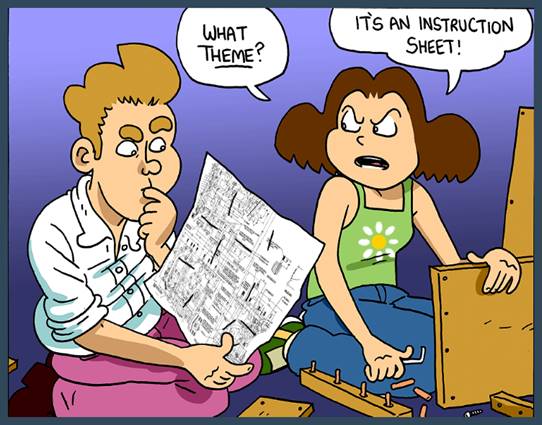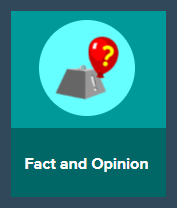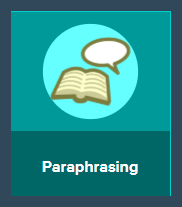Themes

Reading Literature (11-12.2)
Determine
two or more themes of a text and analyze their development throughout the book,
including how they interact and build on one another.
Let’s Practice: Key Terms
Section A: Fact or Opinion
In general,
it is imperative to distinguish between fact and opinion. Things are no
different when regarding literature.
When authors
write, they often mix facts and opinions. So you need to be able to figure out
what's a fact and what's not. A fact is
pretty much any statement that could be proven to be true. It's information
that's readily and quickly and accurately verified.
The opinion is just someone's personal belief or attitude towards something. It
could be that they have a particular viewpoint or maybe a judgment about a
topic, then that judgment could go either way.
So it's essential when you write, as well as mainly when you research, that you
use facts to back up what you're trying to say, rather than just opinions. And
of course, it's essential in everyday life to be able to separate fact from
opinion.
Ø Fact
o
Any statement that can be
proven true
o
Must be supported with
evidence
o
Something that happened
o
Less complex than opinions
Ø Opinion
o
Personal belief or attitude
o
More subjective
o
They are not agreed upon as
factual
o
More complex than simple
facts
o
Can be disguised as facts
used to persuade
Let’s Practice: Fact and
Opinion
Section B: Paraphrasing and
Summarizing
Paraphrasing
and summarizing mean something simple. Frequently, you'll have to summarize and
paraphrase something that you have to read. So when you summarize a passage necessarily,
what you have to do is just read through it and then go through and pick out
the main idea, or main ideas, represented in that passage and just put them in
your own words. So you could kind of say a summary is like a snapshot of that
piece of writing using your unique voice to capture the main idea or ideas.
When you paraphrase, you are still taking something and putting it into your
own words, but you're focusing a lot more on the details so that way you don't
leave anything out.
Plagiarism is stealing someone else's work and passing it off as your own. It
can be illegal and unethical, and doing it can get someone in serious trouble.
So by summarizing and paraphrasing, you are preventing yourself from
accidentally plagiarizing. But you're still taking ideas, and you're still able
to use them in a different way using your voice.
Ø Paraphrasing
o
Read a passage and focus on
the details
Ø Summarize
o
Read a passage and describe
its main idea
Ø Plagiarism
o
Stealing someone’s work and
claiming it as your own
o
Unethical
o
Paraphrasing and summarizing
prevents plagiarism
Let's Practice: Paraphrasing
Section C: Themes
In
literature, a theme is a central idea or insight about life and human nature
that the story reveals. It's the overall generalization that a reader can make
about a story's meaning and significance.
Be careful not to confuse the theme with the subject. The subject is the
topic, which the author has chosen to write about, while the theme makes a
statement about or expresses an opinion about that topic. The topic is what the story is about. Remember that the topic comes directly from
the book or the text, but the theme is what you have to think about and take
away from that topic.
The theme is the message that the author wants you to learn and understand, to
take it and apply it to your own life. Recognizing the theme of a literary work
is important because it allows the reader to understand the author's purpose in
writing that book or passage. To identify the theme of a story, look for clues
provided by the author, such as the title, imagery, symbolism, or even dialogue
between the characters. The author often presents the theme of a story as a
repeated idea. Each reader will typically react individually to a literary
work, but it's important to base an interpretation of a story's theme on
evidence from that story.
Universal
themes are called universal because they are generalizations about life, or
human nature itself, that transcends geography, time, culture, or religion.
They apply to everyone and everything at any time.
A theme makes a revelation about that subject, usually in a sentence. A reader
can find the theme of a story by asking several questions. Does the main
character change? Why? What is the conflict, and how is it resolved? What does
the title mean? What, in this story, applies to everyone?
Ø Theme
o The central dominant idea
o The message that the author wants you to learn
o Insight about life and human nature that the story reveals
o The reader has to discover the theme
Ø Topic
o What the story is about
o The subject of the story
o Comes directly from the text or passage
Let's Practice: Theme


